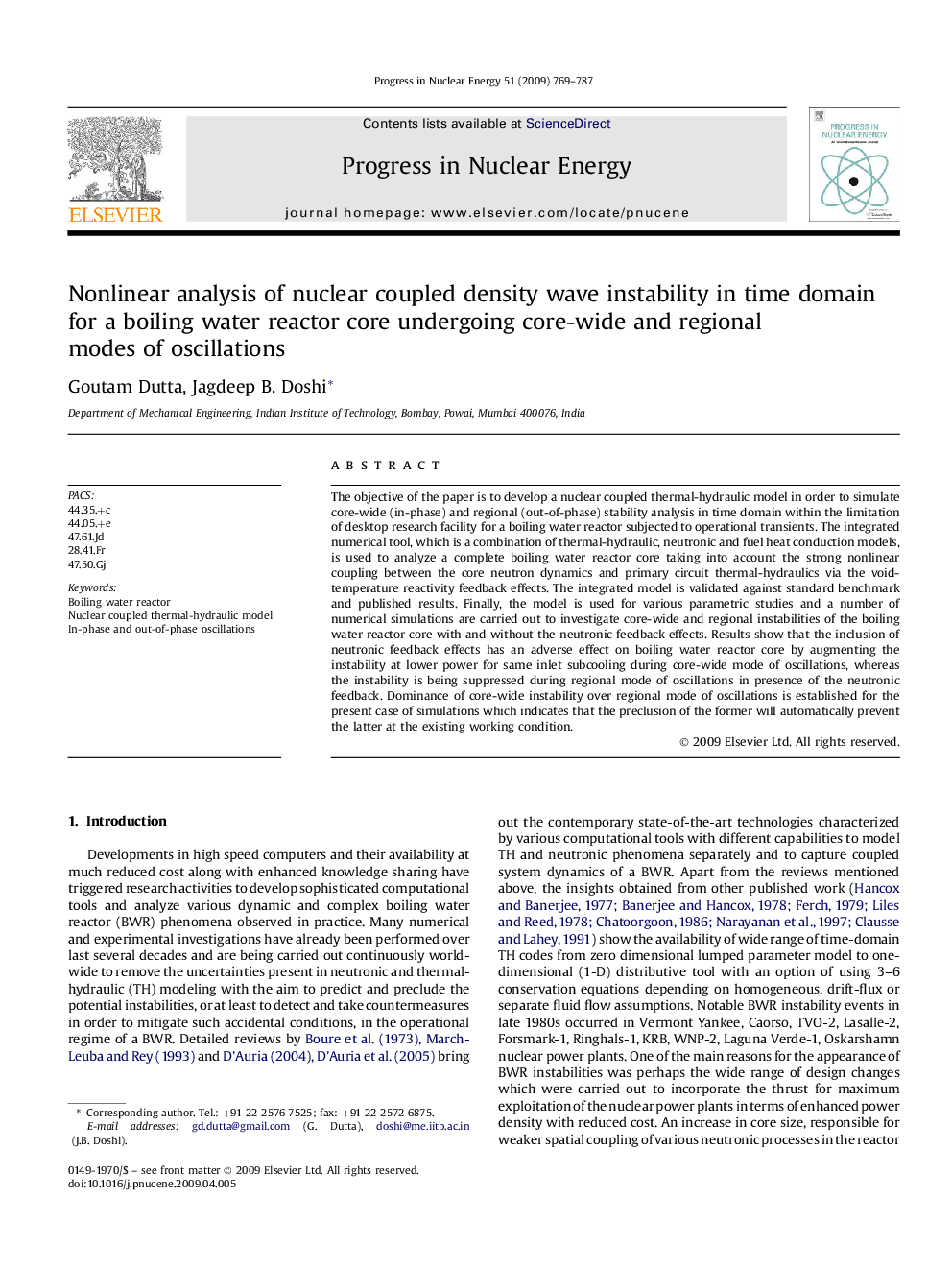| Article ID | Journal | Published Year | Pages | File Type |
|---|---|---|---|---|
| 1741605 | Progress in Nuclear Energy | 2009 | 19 Pages |
Abstract
The objective of the paper is to develop a nuclear coupled thermal-hydraulic model in order to simulate core-wide (in-phase) and regional (out-of-phase) stability analysis in time domain within the limitation of desktop research facility for a boiling water reactor subjected to operational transients. The integrated numerical tool, which is a combination of thermal-hydraulic, neutronic and fuel heat conduction models, is used to analyze a complete boiling water reactor core taking into account the strong nonlinear coupling between the core neutron dynamics and primary circuit thermal-hydraulics via the void-temperature reactivity feedback effects. The integrated model is validated against standard benchmark and published results. Finally, the model is used for various parametric studies and a number of numerical simulations are carried out to investigate core-wide and regional instabilities of the boiling water reactor core with and without the neutronic feedback effects. Results show that the inclusion of neutronic feedback effects has an adverse effect on boiling water reactor core by augmenting the instability at lower power for same inlet subcooling during core-wide mode of oscillations, whereas the instability is being suppressed during regional mode of oscillations in presence of the neutronic feedback. Dominance of core-wide instability over regional mode of oscillations is established for the present case of simulations which indicates that the preclusion of the former will automatically prevent the latter at the existing working condition.
Related Topics
Physical Sciences and Engineering
Energy
Energy Engineering and Power Technology
Authors
Goutam Dutta, Jagdeep B. Doshi,
